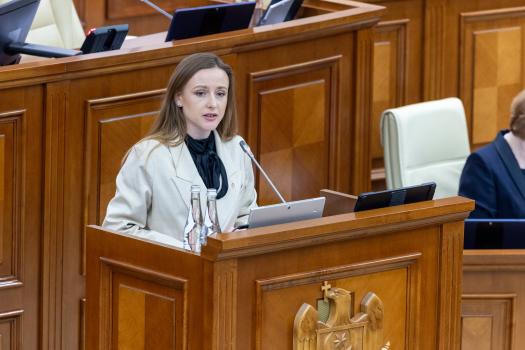Moldova’s Parliament has passed the first reading of a draft law to update the 2018 Energy Efficiency Law. The goal is to encourage more investment in energy efficiency by improving the current legal framework.
One of the key changes is that district heating companies (thermal energy suppliers) would no longer be required to meet certain energy-saving obligations. This could help keep heating bills affordable for households connected to centralised heating systems.
Under the draft law, the list of obligated parties would no longer be approved by the Government but instead managed and published by the National Agency for Energy Regulation (ANRE).
Another change affects fuel importers: their financial contributions will be based on the actual amount of fuel they import, rather than the amount they trade, as is currently the case.
The draft also proposes the creation of the Energy Efficiency Fund, which will support energy-saving projects and renewable energy through programmes managed by the National Centre for Sustainable Energy (CNED). The Fund would also be able to offer financial guarantees and interest subsidies for loans taken by homeowner associations to renovate buildings for energy efficiency.
Homeowners will also have more freedom to choose the contractor who carries out the renovation works, as long as the requirements of the “Green House” subsidy programme are met.
When it comes to local energy planning, only municipal authorities would be required to prepare integrated energy and climate plans. Other local authorities could choose to do so voluntarily.
The proposal also widens access to energy audit services, allowing not only commercial companies but also non-profit organisations to offer them.
Finally, the draft law would simplify rules for smaller buildings. For homes under 250 square metres, energy audits would no longer be required. For larger residential buildings, an energy performance certificate could replace a full audit, if available, in line with the 2023 law on building energy performance.
